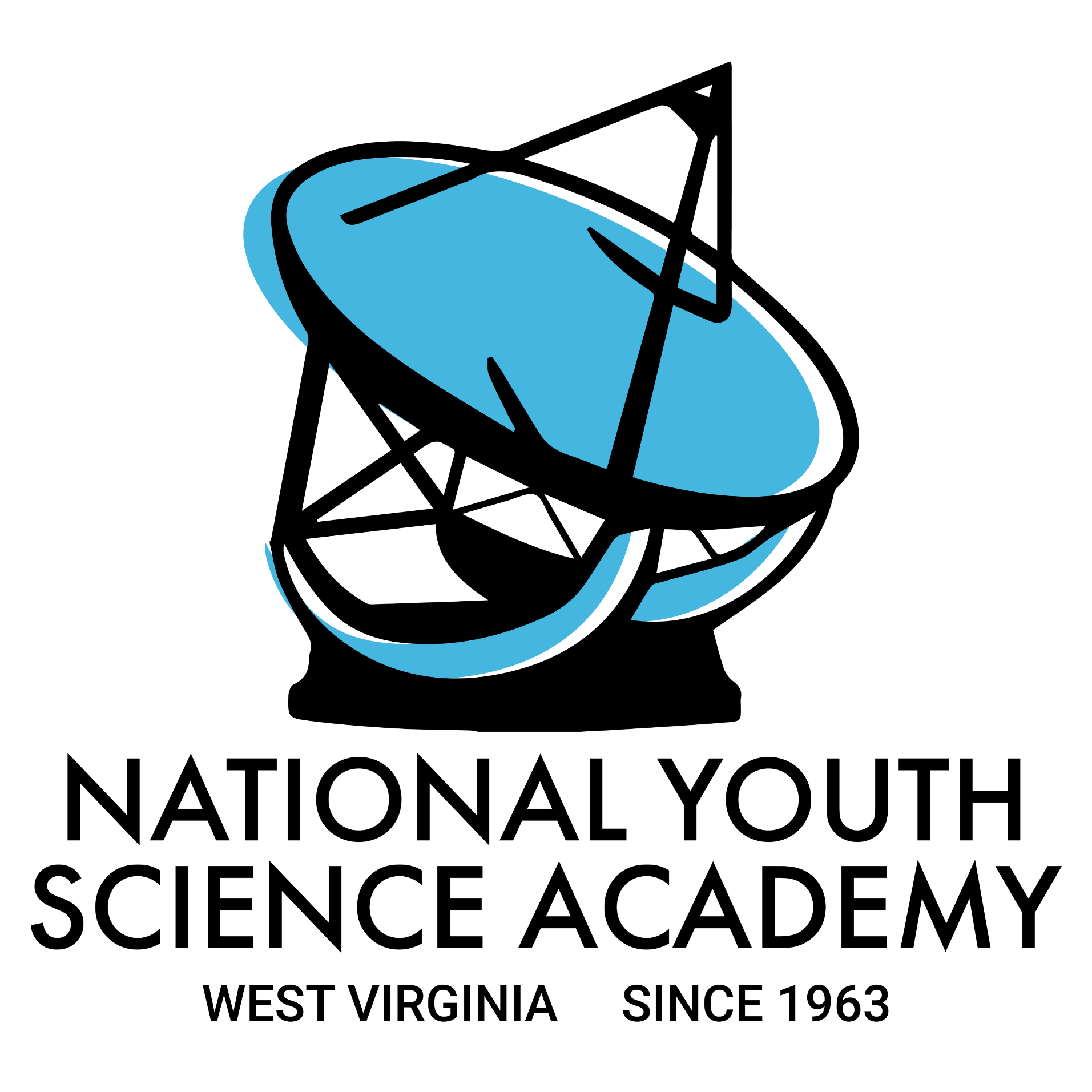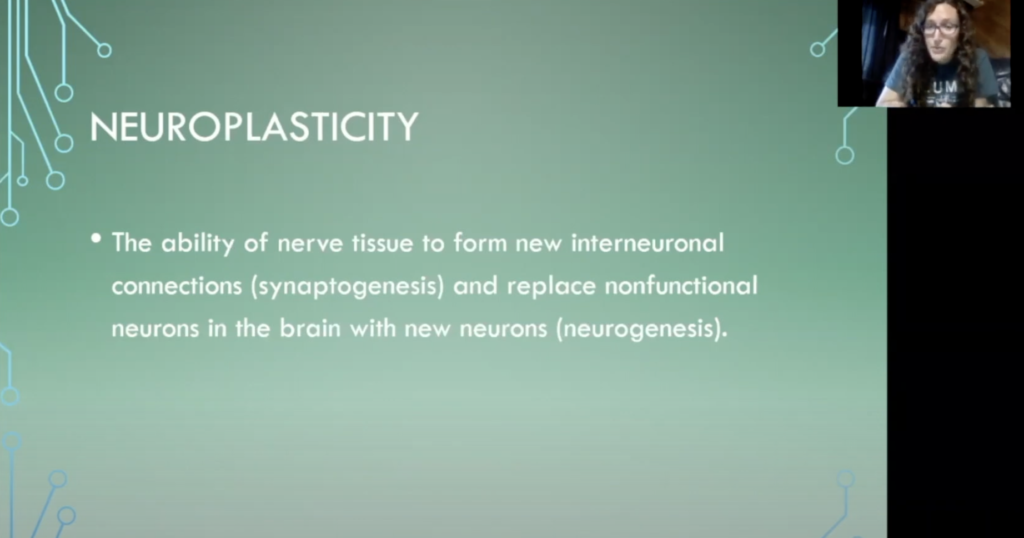“The world of neuromodulation is an exciting and developing field that is revolutionizing the way we think about medicine and neurologic recovery,” explained Jessica Frey, MD, Assistant Professor of Neurology at West Virginia University, as she kicked off the 2022 National Youth Science Camp (NYSCamp) virtual program.
As a past delegate and former camp staff herself, Dr. Frey is no stranger to the NYSCamp. Now, after several years of returning as a lecturer, Dr. Frey was selected to deliver the NYSCamp’s Martha Werhle Opening Lecture. Neuromodulation: Clinical and Experimental Applications, highlighted her work helping to innovate in the field of clinical neuroscience.
“A lot of the research we are doing is examining the exact mechanisms driving neuromodulation in clinical care,” Dr. Frey said. “We know it’s super effective, but we don’t always know the details of the underlying physiology making it possible.”
Dr. Frey’s lecture opened with the basics of neuroplasticity, including a historical overview and surrounding controversies of neurogenesis. She then explained the current clinical neurology technologies that are using ideas of neuroplasticity – the ability of the brain to form and reorganize synaptic connections – to enhance patient outcomes with accompanying videos of real patients. This included an array of direct applications of clinical neuromodulation approaches, including Noninvasive Brain Stimulation (NIBS) techniques (e.g., Transcranial Magnetic Stimulation (TMS) or Transcranial Direct Current Stimulation) as well as Invasive Neuromodulation, such as Spinal Cord Stimulators, which can allow patients with spinal cord injury to walk again.
Other applications discussed included beneficial treatments for Parkinson’s disease, multiple sclerosis (MS), traumatic brain injury, and post-stroke hemiparesis. Dr. Frey concluded with a discussion of robotics, neuroprosthetics, and brain-computer interfaces on the horizon.
“An exciting avenue of use for TMS is for movement disorders for which there is no known cure, such as Tourret’s syndrome or cervical dystonia. TMS is a potential route to bring higher quality of life to patients who have no other options,” Dr. Frey explained.
Delegates of the NYSCamp were exposed to these exciting neuroscience innovations presented by Dr. Frey, providing inspiration for the rising generation of STEM professionals.
About the National Youth Science Camp: Hosted in Monongahela National Forest in West Virginia since 1963, the National Youth Science Camp (NYSCamp) is a residential science, technology, engineering, and mathematics (STEM) program designed to honor and challenge some of the nation’s rising leaders and provide them with opportunities to engage with STEM professionals and participate in exciting outdoor activities. Typically, two delegates are selected to attend camp from each state and the District of Columbia. In partnership with the U.S. State Department, we also host international delegates. Past countries represented include Argentina, Bolivia, Brazil, Canada, Chile, Costa Rica, Ecuador, Germany, Japan, Mexico, and Trinidad and Tobago. Housing, meals, transportation, and supplies are provided to participants at no cost. In response to the COVID-19 pandemic, now for the 3rd consecutive year, the 2022 National Youth Science Camp (NYSCamp) is an entirely virtual experience.

